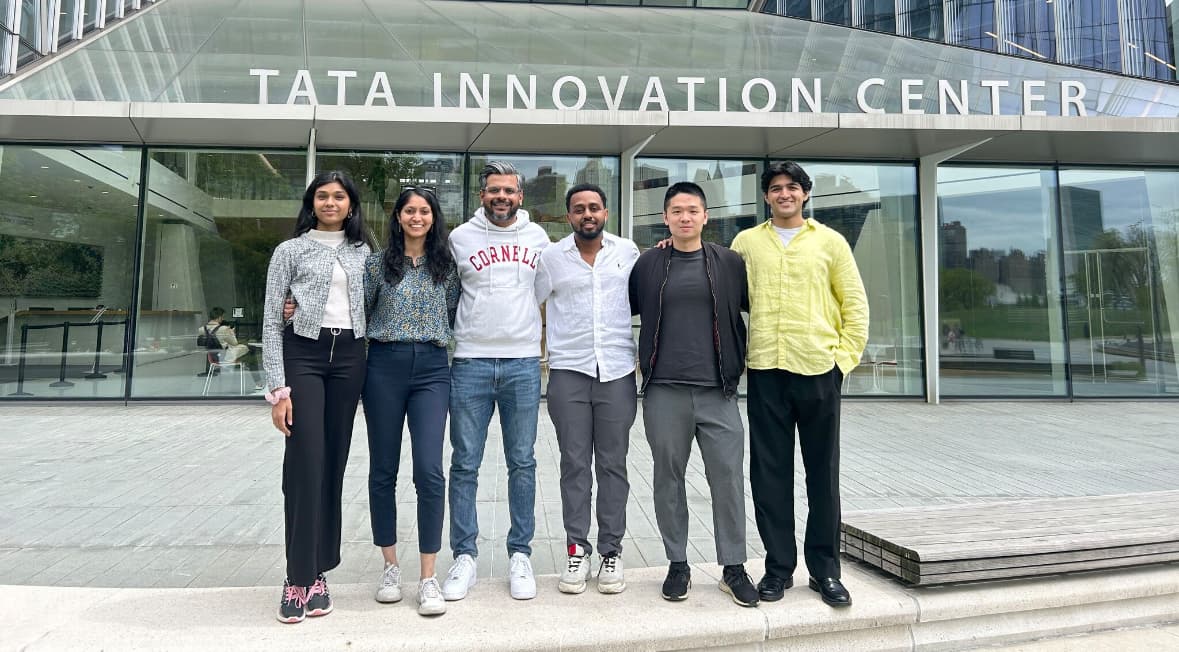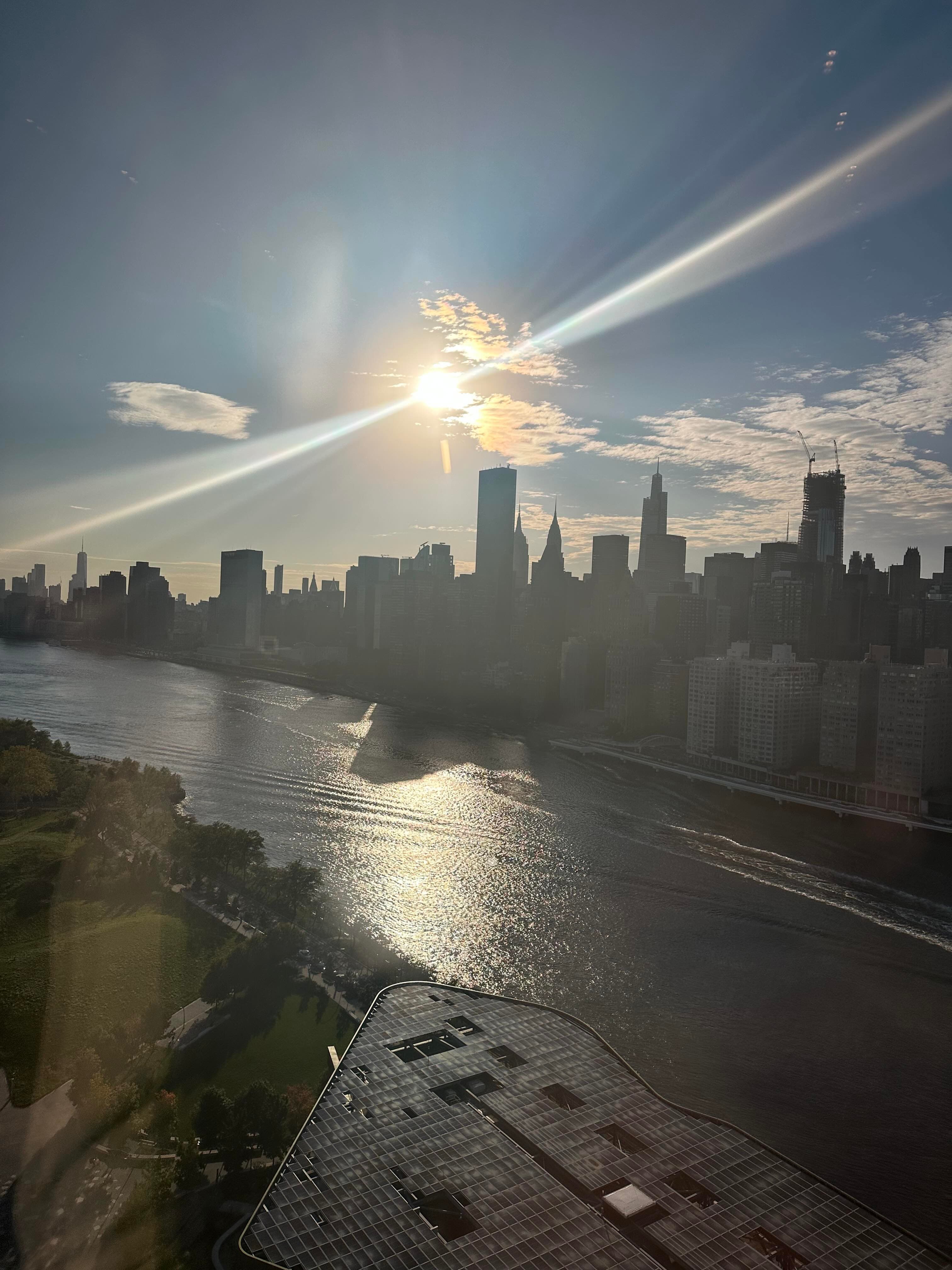Cornell Exchange Student Experience
Cornell Tech was a life changing experience. I learned about product, business and academia in a way that was unmatched.
I spent my senior year of college at Cornell University's NYC Campus, aka Cornell Tech.
There's a few learnings, highlights and things I want to brag about from the experience.
First off, the people.

The campus is primarily made up of graduate students, so I was a bit of a novelty. Despite that, my input or ideas were welcomed and celebrated.
Here's everyone in the photo above, consider this an endorsement and personal attestment to their character and work ethics. I'd work with them again in a heartbeat.
The professors were also awesome, they deeply cared about the material. Highlighting one isn't a jab at the others but something about Professor @Guatam Ahuja's class captivated me.
Proj. Ahuja was an entrepreneur before transitioning to academia. Despite my discipline being more technical, he gave me a deeper appreciation and understanding about the business and product strategy behind tech companies.
He can give an academic analysis on subjects like "How to raise money from VCs" or "How to price your product". Alongside why start ups succeed by rapidly iterating and learning from failure. Whilst larger incumbents would actually fail if they follow that paradigm.
Last, but not least, my compnany advisors, @Tylea Richard and @James Codella, were phenomenal. I'll get more into what a company advisor is later, but they were always available to answer questions and provide guidance. True experts in their respective fields.
The Work
First Semester
The main attraction of Cornell Tech is that the work is heavily applied. Large tech, finance, consulting, real estate and pharma companies would send their employees to supervise and critique projects to act as the aforementioned company advisors.
Company's would provide a prompt, phrased as a "How might we...?" question, provide some resources and we'd work in teams of 4-6 students to come up with a solution.
The first semester was an algorithmic assignment to a company based on a survey of my interests and I ended up matching with Mozilla where @Tylea Richard was my supervisor. Mozilla's challenge was "How might we stop the spread of NCII in online communities?"
NCII stands for Non Consensual Intimate Images. It's a term that encompasses several types of abuse, like revenge porn and now it's becoming an even more serious problem with the dawn of generative image models.
I built FindMe, a web app that would allow users to understand and manage their digital footprint. It was a passion project of mine and I spent many weekends working on it. It was powered by a system that would aggregate the html of several websites where images tend to be posted and run the images against a pre-trained model to determine the probability of an image being you.
We built a waitlist for it with Supabase and got about ~50 sign ups in the first week.
Second Semester
The second semester I was paired with @James Codella from Microsoft where the challenge was "How might we make Large Language Models more reliable in highly regulated industries?"
This resulted in Aegis. A 2 pronged service that would:
- Provide an API to run prompts against a model before forwarding them to the LLM.
- Provide a dashboard to understand the prompts flowing through the API and analyze for malicious intent.
You can read more about it here.
Honestly, I'm really proud of how the project turned out. One of the key metrrics for success was if the company advisors deemed the outcome something that their company would add to their product suite and Microsoft did just that.
The Campus
Not much to say here, the campus was beautiful and getting to take the tram often was definitely a highlight.

Quick Takeaways and Lessons
- Engineers and Designers love building for the sake of the craft but a project is different than a product. Tech is a means to an end. If you don't understand that, your business will fail.
- Nothing is "not my job". Be a CEO at heart, every flaw in the product is a reflection of you, even if it's not.
- Creativity can be learned. Communication can be learned. Even the ability to learn can be learned.
- Your idea is only as good as your ability to communicate it.
- Your idea is only as good as your ability to see it materialize.
- Good roadmaps evolve, they are fluid and change as you learn more about your users.
- It is illegal to not maximize shareholder value, (I wish this was a joke) but you can get sued by shareholders for not cutting costs. A company is obligated to do everything in its power to turn a profit. If an entity does something clearly unethical yet legal to cut costs, blame the law makers.